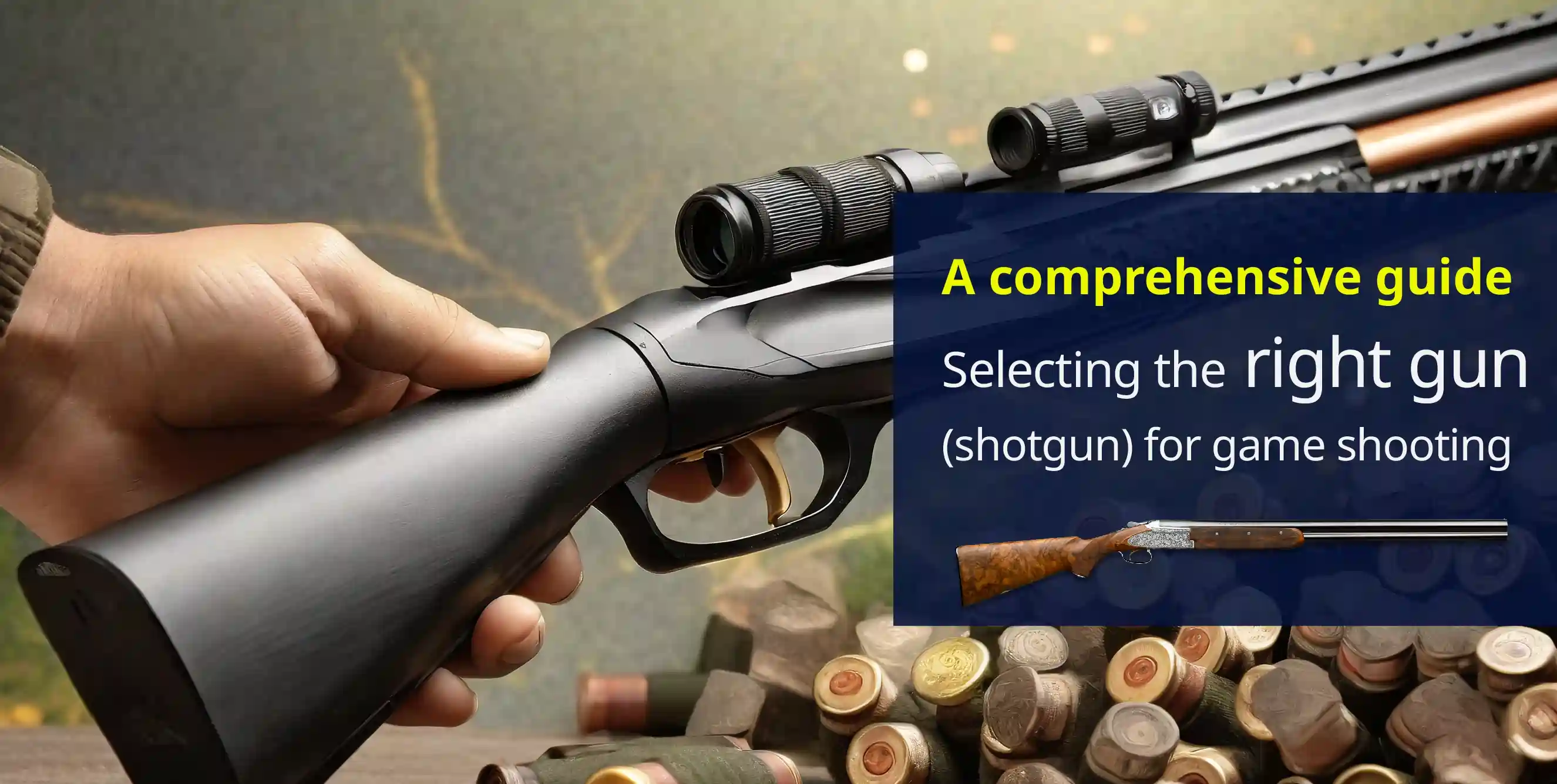Selecting the right gun (shotgun) for game shooting: A comprehensive guide
24-Jul-2024

Mark Eves
When it comes to game shooting, the choice of shotgun can have a significant impact on your experience and success. Whether you're a seasoned shooter or new to the field, picking the right shotgun is a crucial decision. Here's a detailed guide to help you choose a shotgun that will best suit your game shooting needs.
Understand your game
Before you delve into the mechanics and specifications of shotguns, consider the type of game you plan to shoot. Different game animals often require different types of shotguns. For instance, small game such as quail or rabbits may only require a .410 or 28-gauge shotgun, while larger game like pheasant or waterfowl might be better served with a 12 or 20-gauge.
Gauge matters
The gauge of a shotgun refers to the diameter of the barrel and thus the size of the shot and shell that it can accommodate. A lower number means a larger barrel diameter:
- 12-gauge: The most popular gauge, versatile for both small and large game.
- 20-gauge: A lighter option, good for beginners and smaller-framed shooters.
- 28-gauge and .410: Suitable for small game and those looking for a challenge due to the smaller shot pattern.
Remember, a larger gauge shotgun typically means more recoil, so manageability is a key factor in your selection process.
Action type
Shotguns come in several action types, and each has its pros and cons:
- Pump-Action: Reliable and able to shoot a variety of shell lengths. Great for beginners due to its simplicity, but this is not really the right gun to bring on a shoot, and this should be avoided.
- Semi-Automatic: Reduces recoil and can fire successive shots quickly. However, it may be selective with ammo and requires regular maintenance. Again this would be frowned upon if you bring this to a game shoot.
- Break-Action (Over/Under or Side-by-Side): Traditional choice for game shooting, it's reliable and offers two choke options for versatility. However, they typically only hold two shells and can be pricier.
Fit is fundamental
The fit of the shotgun is paramount for accuracy, comfort, and safety. A well-fitting shotgun will feel like an extension of your arm. When shouldering the gun, you should be able to quickly align your eye with the barrel. The stock should rest comfortably against your shoulder, allowing you to swing the gun smoothly.
Barrel length
Longer barrels offer better accuracy for distant targets, whereas shorter barrels are easier to manoeuvre in tight spaces. A barrel length of 26-30 inches is standard for game shooting.
Chokes
These are barrel end adjustments that change the spread of the shot. Interchangeable chokes can make a shotgun more versatile, as you can modify the spread pattern according to the game and shooting conditions.
Weight and balance
The weight of a shotgun affects shooter fatigue and shot stability. A heavier shotgun may offer steadier aim and less recoil but can be tiring to carry over long periods. Conversely, a lighter shotgun is more comfortable to handle but may kick more upon firing.
Material and craftsmanship
The material of the shotgun can affect durability, weight, and cost. Synthetic materials offer durability and weather resistance, usually at a lower price point. Wood stocks are traditional, aesthetically pleasing, and can help absorb some recoil, but may require more care and are generally more expensive.
Budget considerations
Your budget will play a significant role in your decision. While you may be tempted to purchase the best shotgun you can afford, it's also wise to consider the cost of accessories and ongoing maintenance.
Try before you buy
If possible, try several shotguns before making a purchase. Many shooting ranges will allow you to rent different models. The feel of the gun and how you shoot with it can greatly influence your final decision.
Final thoughts
Choosing the right shotgun for game shooting is a balance of personal preference, physical compatibility, and the specific demands of the game you're hunting. By taking the time to consider all these factors, you will enhance your game shooting experience and improve your chances of success. Remember, a shotgun is an investment, not just in your sport but in the memories you'll create while using it. Choose wisely and shoot safely.
Click here to explore shotguns.
Must read:
